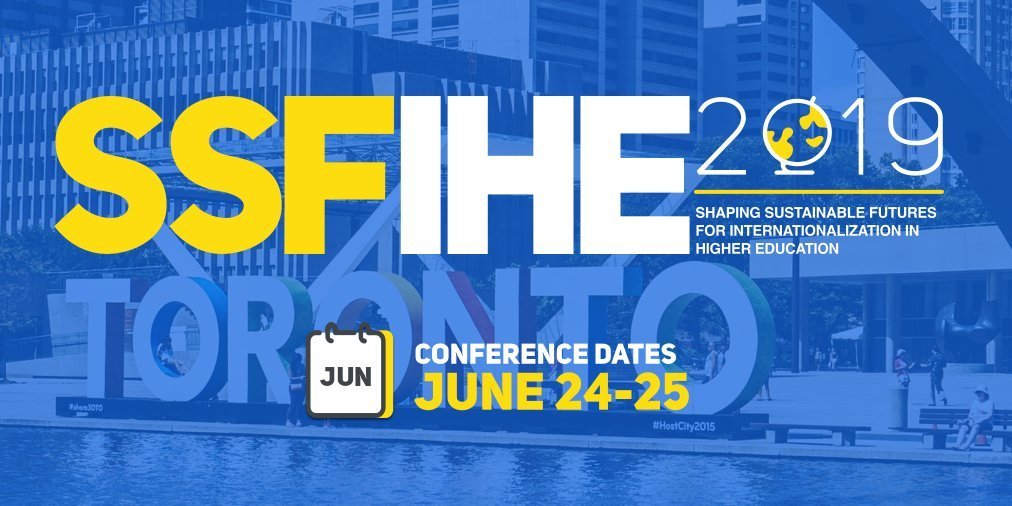The internationalization of higher education has emerged as a major theme within the interdisciplinary field of higher education research. Early work in the 1990s and 2000s traced the contours of the issue and research on the topic has grown since, in step with internationalization itself. In recent years, critical studies and counter-visions of internationalization have emerged.
Internationalization, however, does not only concern researchers, but also policymakers and practitioners who are deeply engaged in this topic. Governments around the globe have published international education strategies, devised policies on recruiting and retaining international students and used their embassies and consulates to promote their education systems. Practitioners working in higher education institutions at the frontline of internationalization support international students and faculty on a whole host of matters from visa advice to technology that enables worldwide learning.
And yet over the past few years, there are signs of rising nationalism and populism and a general backlash to global interconnectedness around the world. Across Europe, you can take your politically driven pick, whether that’s Brexit-paralyzed Britain with huge uncertainties for EU nationals in higher education, reductions to the number of international students in Denmark, or the forced move of the internationally oriented Central European University from Hungary to Austria.
It was in this developing political context that renowned international higher education scholars Philip Altbach and Hans de Wit recently suggested that “the unlimited growth of internationalization… appears to have come to a rather abrupt end”. This doesn’t spell the end of internationalization in higher education, as Altbach and de Wit also explain.
What the current political moment shows instead is that now is the right time to rethink the ways in which internationalization is approached. But how to go about this rethinking?
One route towards rethinking will be through a conference organized by a group of doctoral researchers based at the University of Toronto in Canada but with research interests, professional experience and personal backgrounds spanning the globe. Titled Shaping Sustainable Futures for Internationalization in Higher Education and co-hosted by Humber College and the Centre for Canadian and International Higher Education, it will be held at the University of Toronto on June 24 and 25, 2019.
As the name suggests, the conference will focus on what lies ahead for internationalization. It will bring together student and faculty researchers, policymakers and practitioners to discuss, debate and deliberate the possible range of futures for internationalization over two action packed days. We have two fantastic keynote speakers confirmed already – Dr. Jane Knight, perhaps the best-known figure in the field of higher education internationalization, and Professor Ka Ho Mok, Vice-President and Professor of Comparative Policy at Lingnan University, Hong Kong.
The three conference themes were chosen very carefully so that the content of what is being shared and learned brings out the emphasis on sustainable futures. Those three themes are quality, reciprocity and inclusivity, and we’re asking everyone submitting a proposal to discuss how they will approach one or more of these themes. In the call for proposals, we pose a number of questions that people might want to explore, and/or which may prompt thinking along the lines of the conference themes.
Together with the three conference themes, two other factors were really important to us as we created the blueprint for the conference.
The first factor was about bringing some fresh thinking as well as respect for differences into the way the conference is organized. To that end, we are encouraging submissions that are not limited to the 15 or 20 minute presentation plus paper summary that you often get at academic conferences. There are lots of other ways to share information and to support mutual learning (we offer some ideas in the call for proposals), so get your creative juices flowing!
The second factor was about what happens to the knowledge generated at the conference. We’ve all been to conferences where you have a fantastic time, meet some great people, learn some new things… but then what? What do you do about that new knowledge? Who else gets to learn about what you found out? That’s why we’re prioritizing sessions that encourage interactions between researchers, policymakers and practitioners and those that lead to shareable resources. The idea is to widen the impact of the conference beyond the two days and beyond the groups that are able to participate in person. We hope, for example, to produce white papers that may be of use to policymakers, an edited book and journal special issue to share with the academic community, and recorded workshops and lectures that will be freely available online.
We know that participating in international conferences can be expensive, and we have worked hard to secure funding for travel grants. We’ll be emailing more information about the grants to successful participants in early March. This is an appropriate moment to say a huge thank you to our sponsors who have made not only the grants possible, but have given us free advertising, created our brilliant logo and will ensure that everyone who comes to the conference gets fed!
Submit your proposal by January 31 and join us in Toronto in June as we work together to shape sustainable futures for internationalization in higher education.
Keep up to date with all the latest conference news by following us on Twitter @SSFIHE2019 and joining our mailing list.
Emma Sabzalieva is a PhD candidate at the University of Toronto, Canada. Her research interests are the politics and history of higher education with a focus on the former Soviet space. She is one fifth of the team organizing Shaping Sustainable Futures for Internationalization in Higher Education.
